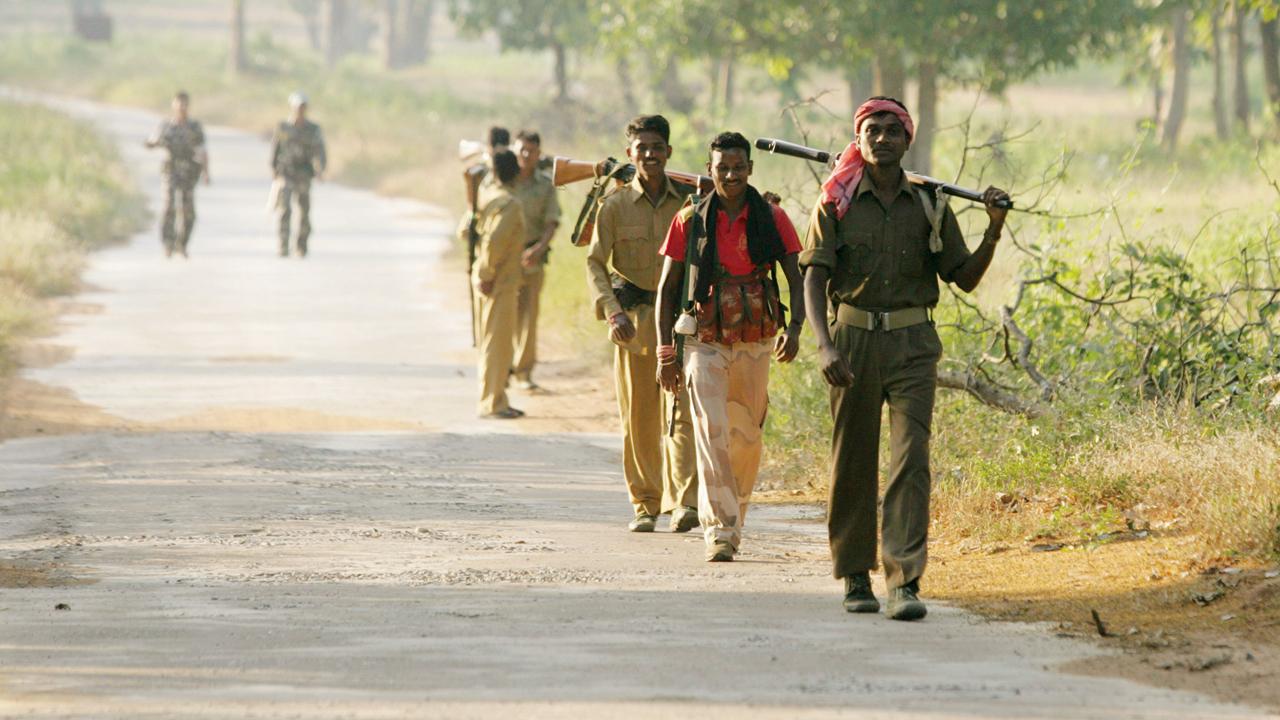Union minister and former actor, Smriti Zubin Irani, turns thriller writer with a novel that takes the reader into a violent Maoist hotbed, where law-enforcers live on the edge

Smriti Zubin Irani
Rage is both, a powerful and painful thing. Smriti Zubin Irani, the Minister of Women and Child Development in the Union Cabinet of India, will also tell you that it can be channelised into something more constructive. A book, perhaps. The politician and former actor’s just released fiction title, Lal Salaam (Westland), is the result of that, she says, when we connect with her on a weekday afternoon. We’ve caught her between lunch; Irani is almost apologetic, when she requests if she can return the call in 15 minutes. She calls back in less than 10—such niceties rarely ever go unnoticed.
ADVERTISEMENT
The book, she says, has been at the back of her mind for years. In April 2010, in what was one of the deadliest attacks by the Maoists on Indian security forces, 76 Central Reserve Police Force (CRPF) policemen were ambushed near Chintalnar village in Dantewada district, Chhattisgarh. The spate of attacks against state forces never really stopped. But, what shocked Irani was the indifference towards the deaths. “The basic desire to tell this story came from a public television debate that I was part of,” she recalls. “One of the participants was very nonchalant about the fact that if a paramilitary personnel has died, this is what they wear their uniform for. I wondered that if there was a family member, friend or colleague listening to this conversation, how did they feel about the stature of the sacrifice being reduced to this in such a discourse. My rage has been building since then.”
 The novel, says Irani, stems from the rage that the April 2010 attack by the Maoists on the Indian security forces in Dantewada of Chhattisgarh, spurred. A file photo police officers patrolling the Naxal infested forests at Bijapur near Dantewada. Pic/Getty Images
The novel, says Irani, stems from the rage that the April 2010 attack by the Maoists on the Indian security forces in Dantewada of Chhattisgarh, spurred. A file photo police officers patrolling the Naxal infested forests at Bijapur near Dantewada. Pic/Getty Images
Lal Salaam tells the story of a young idealistic cop, Vikram Pratap Singh, who after the killing of his childhood friend Darshan Kumar, a deputy commandant of the CRPF battalion, in an ambush in the Maoist-hotbed of Ambuja, secures a posting there in the hope to find answers. The fictional Ambuja, as Irani describes in the book, is a “hellhole where demons are born and dreams go to die. A place where the long shadow of the past eclipses any feeble, flickering hopes for the future”. Unbeknownst to Singh, the town has forever been ridden in a complex web of lies, deceit and hate, and as he investigates deeper, he gets caught in a system, steeped in backroom politics and corruption. He is not solving one crime anymore, but many. “Did you see the killer coming?” she asks. “No,” we admit.
For a debut, this one feels like the work of a more seasoned writer, with unexpected bends that make it a pacy read. In her acknowledgments, she credits dadu, her maternal grandfather Nirmal Chandra Bagchi, “who gave me a pencil to put to paper at the age of seven or eight and asked me to bring alive the story of a clock”. “Intent on honing my writing skills, he told me to imagine what the life of a clock might entail, imagine as time passes how many people it affects and what the clock must think of it,” she shares in the book. “I have written newspaper columns and blogs. I’ve also written screenplays for television. So, writing is not really new for me,” she tells us. “But, I think a lot of my writing stems from my television experience. I want the reader to imagine this world I am talking about. I want the pages to transform into a living, breathing scene.”
Fiction, however, is not what she really set about to write. “I had been working on a manuscript in the non-fiction realm for nearly three years. My editor was quite exasperated, because my research was extensive. At the precipice of her exasperation, when she was about to give up on me as a writer, I told her, ‘What if I tell you a fictional story?’ I narrated the story of Lal Salaam, because it was an idea I had been developing for over a decade. I wrote it for her as a concept, after which I took another year to put it to paper.”
While the novel touches on a contentious issue plaguing India for decades, Irani says her work is pure fiction and should not be seen from a political lens. Naxalism, she admits cannot be romanticised, because it tramples the Constitution in the guise of a movement. But, hers is a story of people. The different characters in the book, and the subset of stories, are a reflection of many emotions. “The larger story would have been incomplete, till such time that every character was given a distinct life and colour. I didn’t want it to be a preachy book, but I did want to offer an insight into a world, very few people know about.”
Incidentally, the novel is told in first person, and through a male protagonist. There were prejudices that Irani was hoping to break. “This book offers entry to a world that you cannot imagine a female writer to have; there was also this presumption that I would write about female characters. I don’t think anyone expected me to write a thriller, and one that was set in violence. There are very few female thriller writers [in India], and I am proud to fall in that category now.” As far as the next book is concerned, she doesn’t know yet if it will be the original non-fiction work, or another novel. “I think the true joy of writing is when you cannot predict what’s the next thing that will come out of your pen. If it excites me as an idea, I am sure to pursue it.”
 Subscribe today by clicking the link and stay updated with the latest news!" Click here!
Subscribe today by clicking the link and stay updated with the latest news!" Click here!







